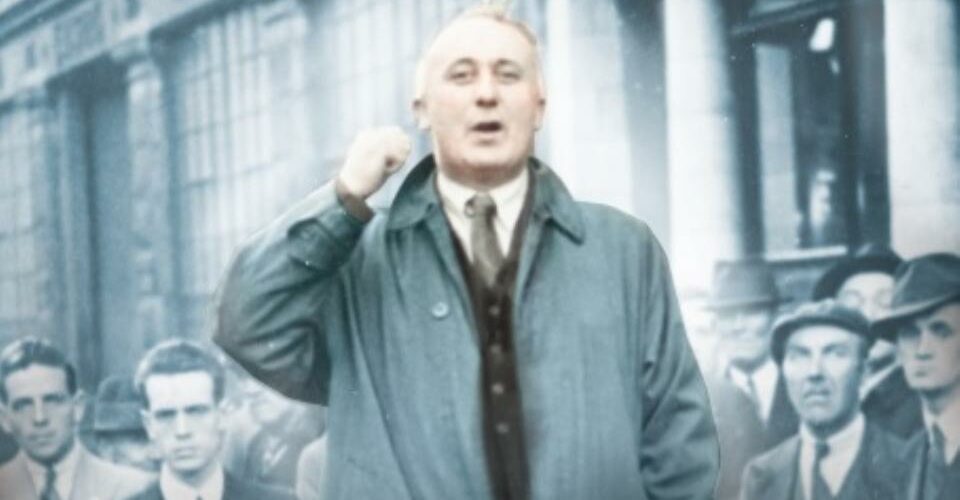“The Communist Party must be the party of national independence . . . This national issue is not something in the road of the CP keeping back the struggle, but is the most powerful weapon in the hands of the working class in Ireland.”
Seán Murray
One of the most common attacks against us by anti-communists, in Ireland and elsewhere, is that communist parties were little more than “pawns of Moscow.” This line of attack was used against the CPI, both by the right and by some on the so-called left, in an effort to use establishment anti-Sovietism as well as to paint the party as a foreign import, pushing an ideology alien to Irish workers. It must be difficult for them to see the CPI still alive thirty years later.
In reality, no communist party can survive without being a product of the unique conditions in its country of origin. While the Bolshevik Party gives us a template to follow in regard to organisation, principles, strategy, and ideology, the success of Marxism-Leninism lies in the ability to apply it to Irish conditions.
The Society of United Irishmen, headed by Wolfe Tone and others, sought to take the principles of the French Revolution—liberty, equality, and fraternity—and apply them to Irish conditions. Given the impossibility of achieving any sort of basic democracy in Ireland without struggling to remove British rule, this was the priority of the mass movement that arose in 1798.
What’s important to remember is that the United Irishmen were following the most radical politics of the time, according to the unique features of Ireland.
Radical republicanism underwent ebbs and flows, until James Connolly developed a Marxist view of Irish history, with a political clarity on the link between national liberation and working-class liberation that was unmatched before. There is nothing more foreign or alien to Ireland than capitalism, a system forcibly implemented by an English bayonet. Yet much of the national independence movement believed the class struggle and national struggle to be separate; and today many on the left believe the national struggle to be a secondary concern.
When the CPI was first formed in 1921 it was a product as much of the radical republican struggle as of the October Revolution in Russia. This is not to play down the influence of the Russian Revolution but instead to make the point that the universal principles of October had to be applied to Ireland, rather than merely imitated or copied mechanically.
Just as Tone followed the radical politics of his time, by 1917 republicanism wasn’t enough in the changing world environment. The occupation of work places, called “soviets,” the general strikes, land seizures, growth of women’s and youth movements, the military struggle—all created the context that the CPI came out of.
What was the opening point in the Irish Revolution? The economistic left would argue that it was the 1913 Dublin Lockout. The republican who is not a socialist would argue that it was the Rising. Both of these were important, but in fact it goes back to the cultural revival, the founding of the GAA, Conradh na Gaeilge, and so on, that put forward the idea of Ireland as a distinct cultural, economic unit—in other words, a nation.
The opening of the Irish Revolution was the movement towards national consciousness, with later moves towards class-consciousness, with the ITGWU itself being formed as an Irish trade union, as distinct from the British unions. Perhaps this is why the labour movement failed to take the lead in the national struggle: it became involved too late.
Class struggle is the substance and national struggle the form. Without national liberation, socialism would have been unthinkable in Vietnam, Cuba, Angola, China, and elsewhere. We are in a unique position in Ireland now in that we can see major constitutional change on the horizon. Can we say we are the weak link in the chain of imperialism as it is expressed in Europe?
While previously the left in Ireland imitated the left in Britain, nowadays the Irish left follows the latest trends in American and European left-wing spaces, without any real consideration of the actual relevance to Ireland. We face a ruling class that is a junior partner of British imperialism historically and more and more closely resembles its European and American betters. If we actually respect our movement seriously, and wish to follow in the best traditions of the communist movement, we need to recognise the actualities of Ireland, how capitalism expresses itself uniquely here, learning from Connolly as we struggle.
Not only did we survive the counter-revolutions of 1989–1991 but we have managed to grow and thrive years later and have dealt a blow to reformist influences.






